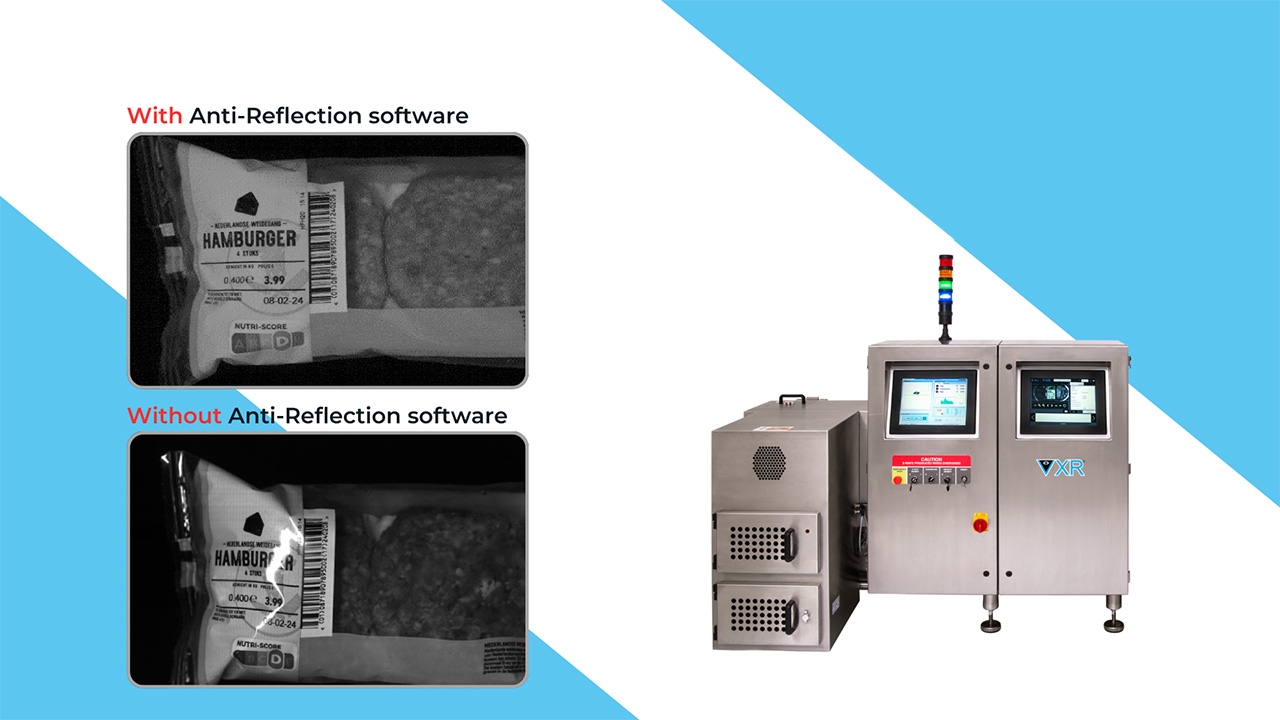Ravenwood unveils anti-reflection and deep learning tech for VXR
The company enhances its X-ray inspection and vision technologies to meet industry demands and comply with regulatory requirements.

Ravenwood has unveiled anti-reflection and deep learning technologies for its VXR vision pack inspection system. This announcement comes on the heels of the recent integration of a seal contamination detection system.
Both software applications analyze pre-print and linerless labels on packaging. The new anti-reflection technology minimizes glare and reflections on flow wrap packs, while deep learning enhances optical character recognition by accurately decoding diverse font styles, including inkjet dot matrix fonts.
Both technologies are adaptable for retrofitting into existing vision systems. For new machine orders, deep learning is now included as a standard feature, while anti-reflection is offered as an optional addition.
According to the company, many meat packers have transitioned from MAP to flow wrap-style packaging to reduce material usage and pack weight, lower energy consumption, extend product shelf life and improve recyclability. While the overall benefits of flow-wrap packaging surpass those of MAP, the high reflectivity of flow-wrap presents challenges in capturing reliable pack images with standard imaging methods.
To solve this issue, Ravenwood has developed a novel method for reducing the effect of glare and reflection during the imaging process. Supplied as an optional extra, the process is a combination of improved image processing software combined with an enhanced method of illumination. Standard packs can still be inspected as usual.
Ravenwood has also realized that inkjet printers often generate low-quality date codes, and conventional optical recognition software can prove unreliable in reading them, thus leading to unnecessary pack rejections and contributing significantly to food waste that could otherwise be prevented.
Ravenwood is addressing this issue with advanced Deep Learning technology powered by Halcon software. The improved optical character recognition can eliminate background images, a feat traditional OCR could not achieve. This new software is user-friendly and requires less operator programming, as fonts do not need to be manually taught as required with older methods. It intelligently ignores certain fonts or text below a specific height, such as Julian date codes and line identification codes. The software has been successfully integrated into existing Ravenwood VXR machines at multiple customer sites.
Stay up to date
Subscribe to the free Label News newsletter and receive the latest content every week. We'll never share your email address.

